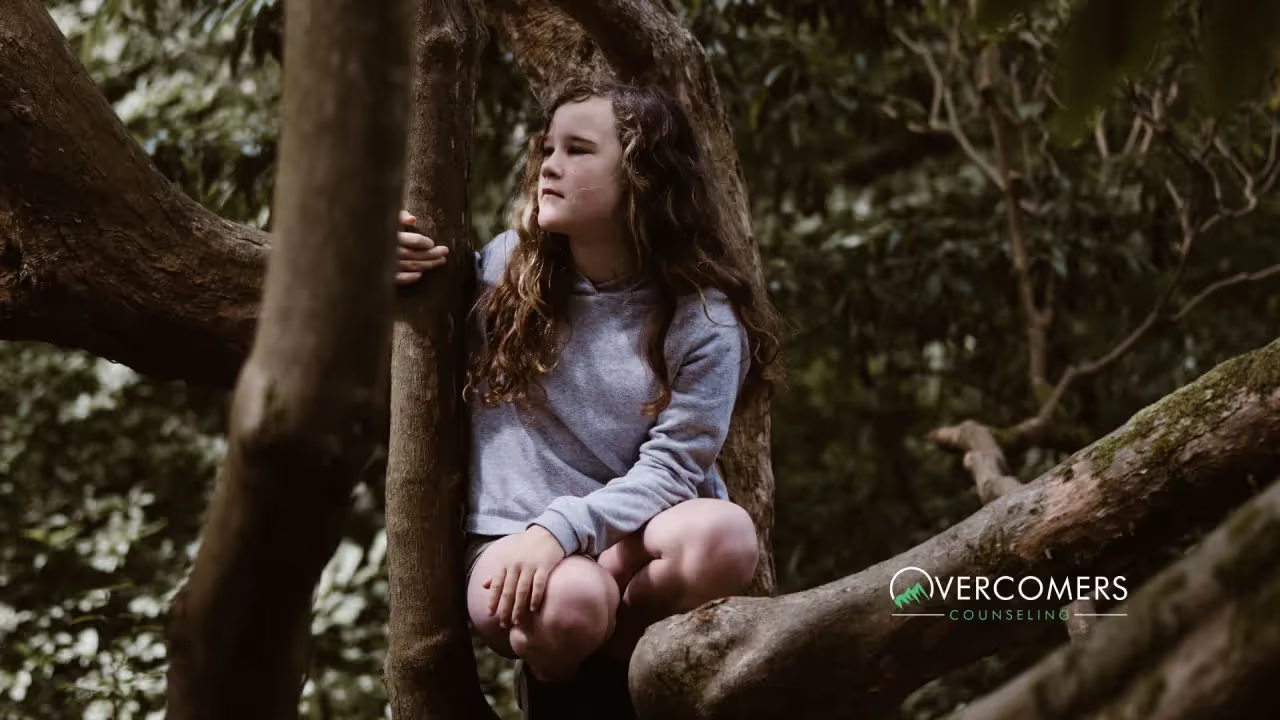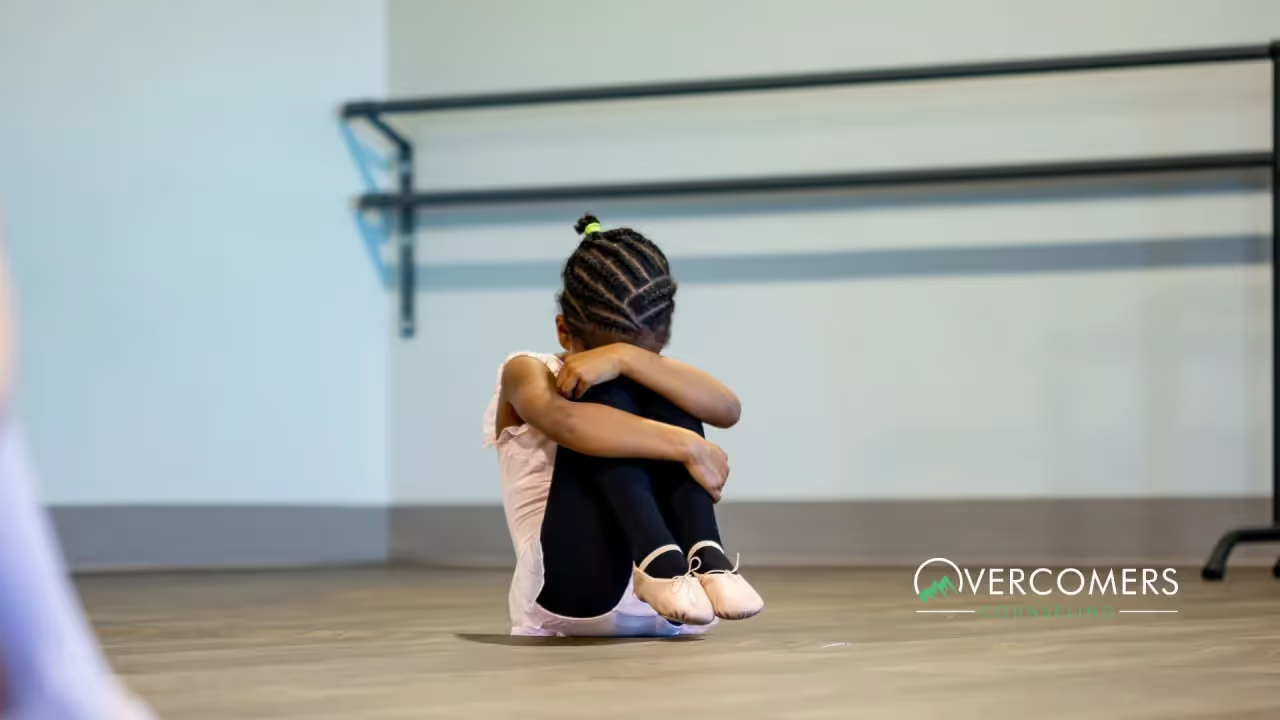Anxiety during childhood is a widespread mental health problem impacting a substantial number of children globally.It's characterized by excessive worry or...

Anxiety during childhood is a widespread mental health problem impacting a substantial number of children globally.It's characterized by excessive worry or fear, which can interfere with a child's daily activities and overall health.Understanding and addressing childhood anxiety is crucial as it plays a pivotal role in a child's development.If left untreated, it can result in academic struggles, social isolation, and other serious complications. By gaining insight into childhood anxiety, we can better equip ourselves to recognize its signs and provide the necessary support.This understanding is not just vital for parents and caregivers, but also for educators and healthcare professionals, who can collectively contribute to a healthier, happier future for our children.
Childhood anxiety can manifest in various forms and intensities, each unique and often quite challenging for the child experiencing it.For instance, consider a case of Generalized Anxiety Disorder (GAD) where a child may constantly worry about everyday activities such as school performance or punctuality.This constant state of worry can lead to difficulty concentrating, restlessness, and even physical symptoms like fatigue and irritability.Similarly, Separation Anxiety Disorder is characterized by excessive distress when the child is away from home or separated from their parents or caregivers.This might lead to nightmares, refusal to go to school, or even physical complaints when separation is imminent.Social phobia, another type of anxiety disorder in children, involves an intense fear of social or performance situations and activities such as speaking in public or initiating conversations.This can result in the child avoiding situations where they have to interact with others, leading to feelings of isolation and low self-esteem.Then there's Selective Mutism, where a child who is normally capable of speech, consistently fails to speak in specific situations or to certain people
Physical Symptoms
Emotional Symptoms
Behavioral Symptoms
Remember that each child is unique and may exhibit different combinations of these symptoms. If you suspect your child is dealing with anxiety, it's important to seek professional help.
The causes of childhood anxiety are multifaceted, often interweaving genetic, environmental, and psychological factors.Genetically, children who have a family history of mental health disorders are more likely to develop an anxiety disorder, suggesting that these conditions can be hereditary.Environmental factors play a significant role too; children who have experienced traumatic events or who live in high-stress environments are more susceptible to anxiety.For instance, a child might develop anxiety after moving to a new school, or if they're living in a home where there's constant conflict.Even everyday pressures like academic expectations or peer relationships can trigger anxiety in some children.

Childhood anxiety, if left untreated, can have a profound impact on a child's life.Academically, children with anxiety may struggle with concentration and memory, leading to decreased performance in school.Their overwhelming fear and worry can also inhibit social interactions, causing them to isolate themselves from peers and avoid participating in group activities.This can lead to feelings of loneliness and lower self-esteem. In terms of overall quality of life, persistent anxiety can result in chronic physical health issues, including sleep disorders and headaches.Long-term, untreated childhood anxiety can potentially evolve into more severe mental health disorders in adulthood, such as depression or substance abuse.Therefore, early recognition and intervention are crucial in mitigating these impacts and helping the child lead a healthier, happier life.
There are several effective treatment options available for childhood anxiety, with Cognitive Behavioral Therapy (CBT) being one of the most widely used.CBT helps children understand their fears and learn coping strategies to manage their symptoms.In some cases, medication may be prescribed by a healthcare provider. However, it's typically used in conjunction with therapy and not as a standalone treatment.Parents, teachers, and caregivers play a crucial role in a child's treatment process. Their support can help create a safe and reassuring environment for the child, which is conducive to recovery.They can also collaborate with mental health professionals to enforce the coping strategies learned in therapy at home or school.Thus, treating childhood anxiety is a comprehensive approach involving therapeutic interventions, possible medication, and significant support from the child's immediate environment.
Preventing and coping with childhood anxiety involves a combination of proactive strategies and lifestyle changes.Parents and caregivers can help children manage their anxiety by maintaining open communication, validating their feelings, and teaching them relaxation techniques like deep breathing or mindfulness exercises.They can also encourage problem-solving skills, helping the child face their fears instead of avoiding them.Regular physical activity, a balanced diet, and adequate sleep are lifestyle changes that can significantly reduce anxiety symptoms.Limiting screen time and ensuring the child has opportunities for unstructured play can also contribute to their emotional well-being.By incorporating these measures, parents and caregivers can foster resilience in their children and equip them with the tools to effectively manage anxiety.
Anxiety can significantly impact a child's academic performance, social interactions, and quality of life if left untreated.Hence, parents and caregivers must keep an open line of communication and observe their children for any signs of distress.Treatments like Cognitive Behavioral Therapy and supportive home and school environments can greatly help manage and overcome anxiety.If you suspect your child may be suffering from an anxiety disorder, don't hesitate to seek help from mental health professionals.Early intervention can make a significant difference in your child's life, promoting healthier and happier growth.
Help your child by providing support and guidance, using positive language, highlighting the progress they have made, breaking down the challenge into smaller steps, and motivating them with positive affirmations.